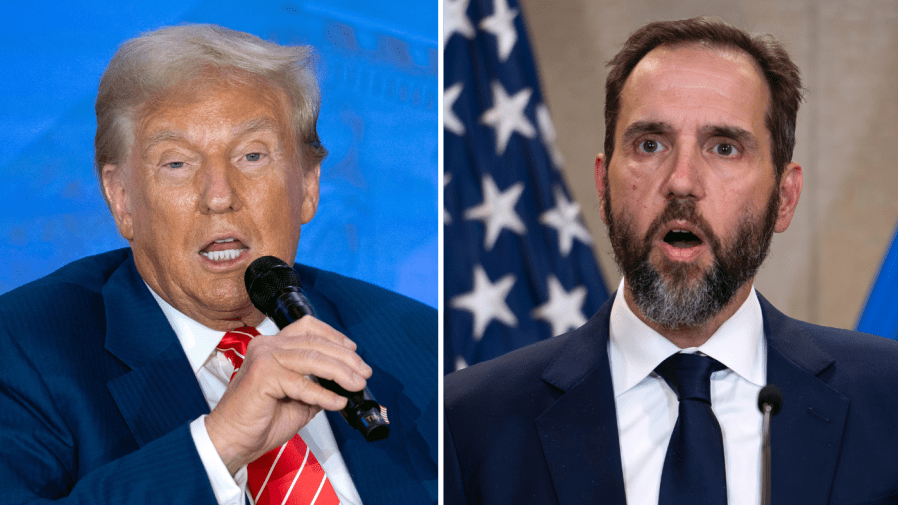
Donald Trump made history this week, but not in a good way.
As far as I am aware, with the release of Jack Smith’s report on Trump’s criminal culpability for the events of Jan. 6, 2021, Trump is the first person in American history to be investigated by two separate special counsels.
There’s some real irony here. Robert Mueller declined to prosecute Trump because he was a sitting president. Smith did prosecute Trump but was forced to drop his case when Trump was elected president.
Trump was able to run out the clock because it took two-and-a-half years to indict him for his role in attempting to overturn the 2020 election results. But suppose Smith had also been authorized to pick up where Mueller left off and prosecute Trump’s indictment-ready pre-2020 crimes that were still within the statute of limitations? If nothing else, Trump’s presidential immunity claims would have been resolved much sooner and not delayed a trial on the election interference indictment.
And what a trial it would have been. Smith’s final report explains how there was plenty of admissible evidence for a conviction, even after the Supreme Court’s decision granting Trump blanket criminal immunity for official acts. But that trial never happened, and that’s a damning indictment of Attorney General Merrick Garland, who appointed Smith.
If Garland had been more focused on enforcing the rule of law and less focused on the political implications, the world might look very different today. It is true that the report indicates the Department of Justice was investigating Trump’s involvement in the events of January 6 earlier than most people thought. But Garland had four years to prosecute a crime that the entire country watched play out on live TV. He failed. Garland hesitated because he was concerned that the precedent of prosecuting a former president would be bad for the country. How’s that working out for him now?
There is a further irony here. The report is in two parts. The first dealt with charges related to the efforts to overturn the election results. The second dealt with Trump retaining and concealing classified documents. The second part of the report wasn’t released because, while Smith dropped his prosecution of Trump, the Department of Justice is still prosecuting Trump’s alleged co-conspirators, Waltine Nauta and Carlos De Oliveira.
But there is zero chance that these prosecutions will continue — or that the report will be released — once Trump takes office. So Garland first frustrated the effort to hold Trump accountable by being reluctant to charge him and then frustrated the effort to hold Trump accountable by refusing to drop now-pointless charges against Trump’s co-conspirators. Talk about the road to hell being paved with good intentions.
The report itself doesn’t contain a lot of new information that wasn’t explored by the House January 6 committee. Perhaps the most interesting new details had to do with how the plot developed to appoint fake electors and use them to manufacture a conflict during the electoral count. Smith traces this scheme back to Trump himself and ties it together with Trump’s full-court press to convince Vice President Mike Pence to sabotage the electoral vote count.
The report’s bottom line is this: “[B]ut for Mr. Trump’s election and imminent return to the Presidency, the Office assessed that the admissible evidence was sufficient to obtain and sustain a conviction at trial.” Trump escaped being tried by a jury, but posterity will judge him guilty nonetheless.
Legally, Jack Smith’s report doesn’t matter. Though Smith sought to drop the charges against Trump “without prejudice,” meaning they could theoretically be reinstated, there is no chance of that happening. Trump cannot be prosecuted while president and, because the statute of limitations continues to run, he will not be prosecuted after 2028, either.
There is an easy, one-line fix in the law for this statute-of-limitations problem, but President Biden refused to push for it during his presidency. Had he done so, the indictment could be reinstated once Trump leaves office. This is just the first of what I’m afraid will be many examples where Biden’s failure to Trump-proof our democracy will come back to haunt us.
Historically, Smith’s report matters quite a lot. It is a monument to what might have been, a cautionary tale that, assuming American democracy survives sufficiently intact, may motivate some future president and some future congress to do what Joe Biden and Merrick Garland failed to do: strengthen the rule of law and rebuild the guardrails of democracy.
Yes, the Smith report is a monument. Let’s hope it is a guidepost and not a gravestone.
Chris Truax is a charter member of the Society for the Rule of Law and an appellate attorney.












